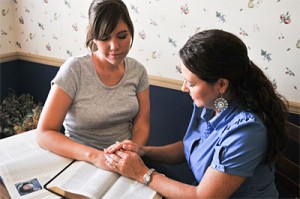Several years ago, a friend told me that she had seen lots of changes in me over the years. Though she didn’t really mean it to be a compliment, I took it that way. “You aren’t nearly as serious as you used to be,” she said. “Before you always had an answer to every question. Now you seem to merely sit and listen.”
 In reality, I hope her assessment of me is correct. In her first observation, there was a time that I took myself very seriously–much too seriously. The root of that seriousness was pride. While I would’ve never admitted it, especially to myself, I thought I had obtained a bit of an inside track with God. Therefore, my friends had to be pretty fortunate to know me. That impression of myself was killed quickly by a dose of reality and it’s a good thing.
In reality, I hope her assessment of me is correct. In her first observation, there was a time that I took myself very seriously–much too seriously. The root of that seriousness was pride. While I would’ve never admitted it, especially to myself, I thought I had obtained a bit of an inside track with God. Therefore, my friends had to be pretty fortunate to know me. That impression of myself was killed quickly by a dose of reality and it’s a good thing.
Second, it’s also true that I felt it was my obligation to give people an answer when I was approached with a problem or concern. I learned from a good friend–who dared to be honest with me–that most of the time, it was prudent to listen and keep my great advice and wisdom to myself.
 Much of what I’ve learned has been through adversity and trouble. Facing personal and financial problems taught me humility and scraped away a lot of self-assurance. Now, I happily admit that I don’t know as much as I did when I was 30 years old. Additionally, I look into the visage of humility each day as I face Special Gathering members who are mentally challenged. We are the only disability that has become the brunt of jokes and slurs. Even people in powerful positions have used the “R” word to denigrate others.
Much of what I’ve learned has been through adversity and trouble. Facing personal and financial problems taught me humility and scraped away a lot of self-assurance. Now, I happily admit that I don’t know as much as I did when I was 30 years old. Additionally, I look into the visage of humility each day as I face Special Gathering members who are mentally challenged. We are the only disability that has become the brunt of jokes and slurs. Even people in powerful positions have used the “R” word to denigrate others.
It has been said that we can learn humility voluntarily or involuntarily. It’s much easier to learn it voluntarily.

